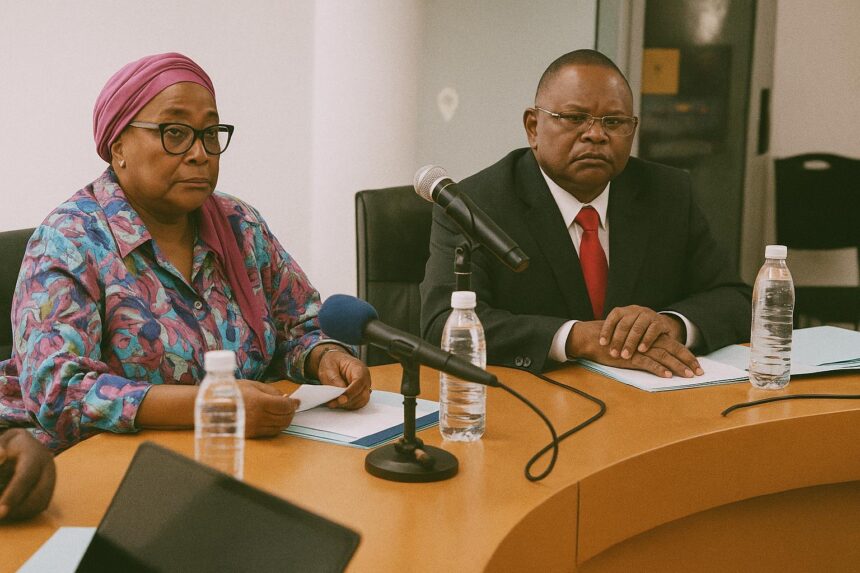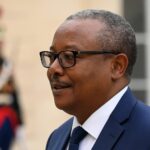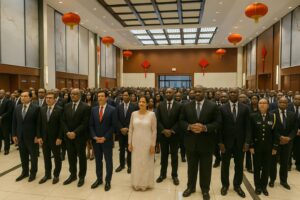Hydrocarbon Reliance Meets Economic Diversification
The Republic of Congo remains the fourth-largest crude producer in sub-Saharan Africa, with an output hovering around 300,000 barrels per day according to the latest OPEC bulletin (OPEC 2024). Hydrocarbons deliver nearly 60 percent of fiscal revenues and almost 80 percent of export earnings, a profile that provides liquidity yet exposes the state budget to sharp price swings. While Brazzaville’s National Development Plan 2022-2026 already acknowledges the imperative of diversification, the July 2025 stakeholder roundtable—convened by the Rencontre pour la paix et les droits de l’homme—has injected fresh urgency and a holistic vocabulary of human rights, social equity and environmental health into an otherwise macroeconomic dialogue.
- Hydrocarbon Reliance Meets Economic Diversification
- Diplomatic Context of Congo’s Energy Debate
- Stakeholder Voices From the Brazzaville Forum
- Regional Comparisons Inform the Conversation
- Fiscal Stability and Social Equity in Transition
- International Partnerships and Financing Pathways
- Toward a Shared Roadmap Beyond Petroleum
Diplomatic Context of Congo’s Energy Debate
Ministerial representatives at the table were keen to cast the transition question in diplomatic rather than confrontational terms. Acting Director-General for Sustainable Development, Olga Rosine Ossombi Mayéla, framed the encounter as a search for “a green, inclusive and resilient chapter” consistent with Congo’s signature of the Paris Agreement and its role in the Congo Basin Climate Commission. By focusing on the potential synergy between national commitments and global funding windows, officials effectively positioned Brazzaville as a constructive partner rather than a reluctant latecomer to decarbonisation.
Stakeholder Voices From the Brazzaville Forum
Civil-society leader Christian Mounzéo argued that justice, integrity and local ownership must anchor any roadmap. His appeal resonated with indigenous community delegates who described long-standing inequities in benefit sharing from oil blocks situated along the coastal corridor. Private-sector executives, meanwhile, highlighted the need for bankable projects that can absorb excess labor once the sector reaches peak employment. The diversity of interlocutors under one roof—ranging from Pointe-Noire petroleum engineers to Ouesso forest-sector cooperatives—signalled an embryonic but genuine consensus: the transition cannot be decreed; it must be co-engineered.
Regional Comparisons Inform the Conversation
Several experts drew on Nigeria’s Petroleum Industry Act and Ghana’s Local Content Regulations as cautionary case studies, noting that diversified tax regimes and transparent sovereign wealth vehicles tend to mitigate boom-bust cycles (African Development Bank 2024). Angola’s recent issuance of a €1.5 billion green bond was also cited as evidence that capital markets reward credible decarbonisation pledges. Such regional evidence provided participants with pragmatic yardsticks, distancing the Congolese discussions from purely theoretical aspirations.
Fiscal Stability and Social Equity in Transition
International Monetary Fund simulations suggest that a gradual, five-year phase-down of oil subsidies—paired with targeted social transfers—could free up 1.2 percent of GDP annually for health and education spending (IMF 2023). Yet speakers warned against abrupt fiscal tightening that might erode hard-won macroeconomic stability. The proposed pre-roadmap therefore sketches a dual-track approach: hedging short-term oil revenue volatility through conservative price benchmarks while earmarking windfall gains for renewable infrastructure and vocational reskilling.
International Partnerships and Financing Pathways
The World Bank’s forthcoming $250 million Country Climate Development Report identifies solar mini-grids, sustainable timber and agribusiness value chains as sectors with the highest job-creation multipliers (World Bank 2024). French, Chinese and Emirati delegations at the hotel foyer discreetly explored public-private partnerships, confirming that international appetite exists—provided that regulatory clarity and political continuity are assured. European Union observers noted that Congo’s vast peatlands, which sequester an estimated 30 gigatonnes of carbon, could unlock sizeable results-based finance under Article 6 of the Paris rulebook.
Toward a Shared Roadmap Beyond Petroleum
By the closing session, participants had co-drafted a non-binding communiqué calling for an inclusive steering committee, a national inventory of stranded oil assets and an inter-ministerial task force to align fiscal, industrial and environmental policies. While the document stops short of prescribing timelines, it underscores a collective willingness to move from rhetoric to implementation. More importantly, it places human development indicators—health, education, gender equity—alongside megawatts and barrels as metrics of success.
The nuanced tone of the Brazzaville dialogue illustrates Congo’s calibrated stride: not an abrupt exit from oil, but a negotiated re-entry into a diversified, climate-aligned economy. In diplomatic circles, that incremental realism may prove just as compelling as any headline-grabbing pledge of immediate decarbonisation. As one senior official confided in the hotel corridor, “Our challenge is not to abandon oil overnight, but to ensure that when the last barrel is sold, the future has already been financed.”




















